To be a woman is to undergo several processes. From altering the shape of your nails, removing blemishes to styling your hair, the ‘female process’, as artist and photographer Nancy Ragab calls it, is an entire empire that emerges from society’s need to create a woman – you are never born a woman.
For Nancy’s grandmother, the female process in her time was different. She cannot not dye her hair, or walk in sweatpants at home, or let her hair loose, or be seen with ‘messed up’ nails. Her beauty regimen was a second religion she had to obey and follow; an exclusive thing between women that is passed on to the next generation of women.
But is femininity permanent? Today, as a modern and young Egyptian woman living in the outskirts of Cairo, Nancy no longer sees womanhood through a unified lens. She doesn’t need to follow a regimen every night, wear high heels, or be seen with fully styled hair at all times. Exposure to all kinds of women, times and cultures allowed her to have some level of choice, despite the constraints that still exist.
“Femininity is not permanent,” she says, “it will keep changing and engage in different processes.”
Fascinated by how female processes change and evolve over time, Nancy started ‘Hagat Helwa’ as part of her pre-masters project this year, which is a printed magazine that aims to tackle the idea of the ‘female process’ and the construction of its identity by exercising outlets such as beauty salons, DIY instructions, and unwritten etiquette codes.
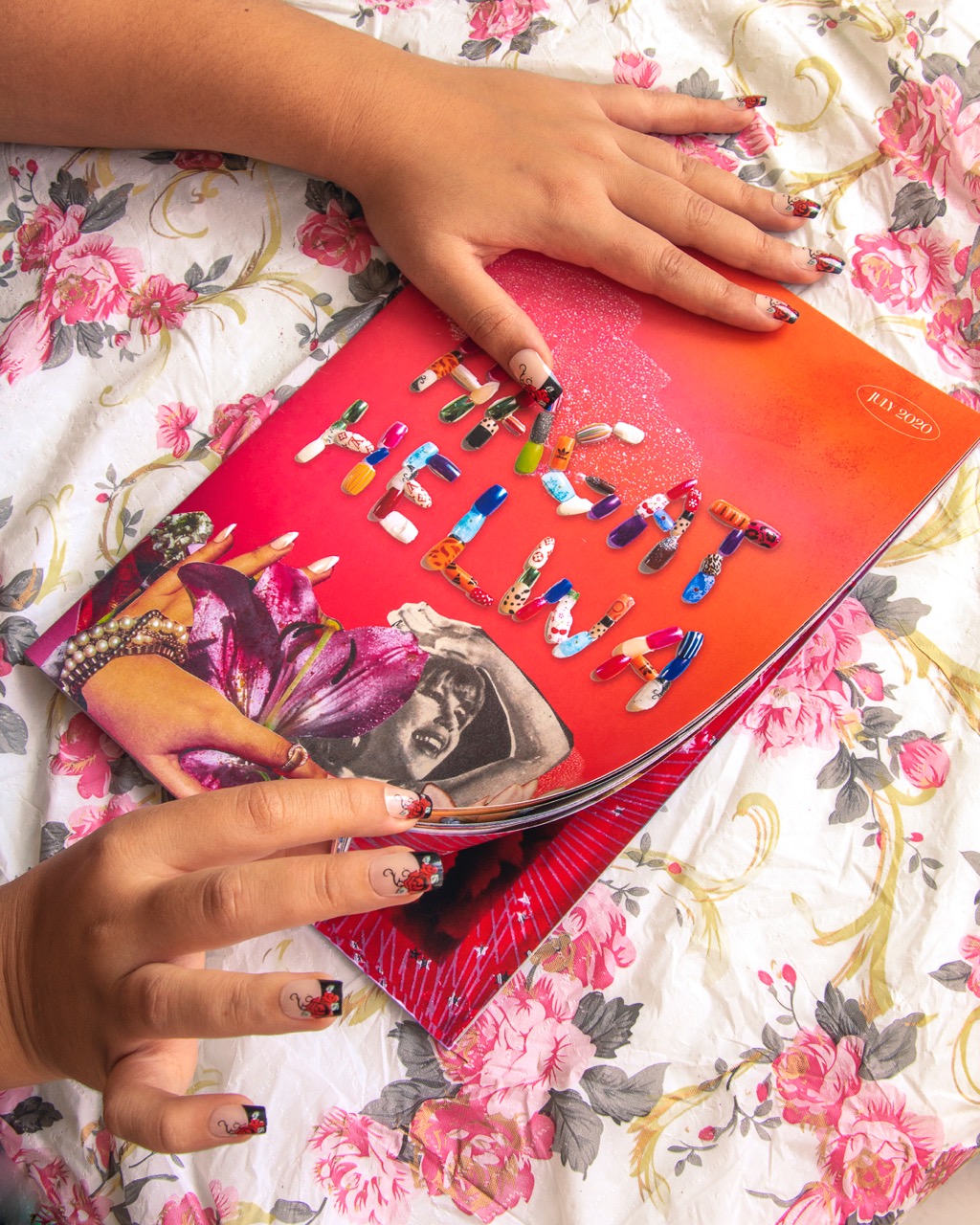
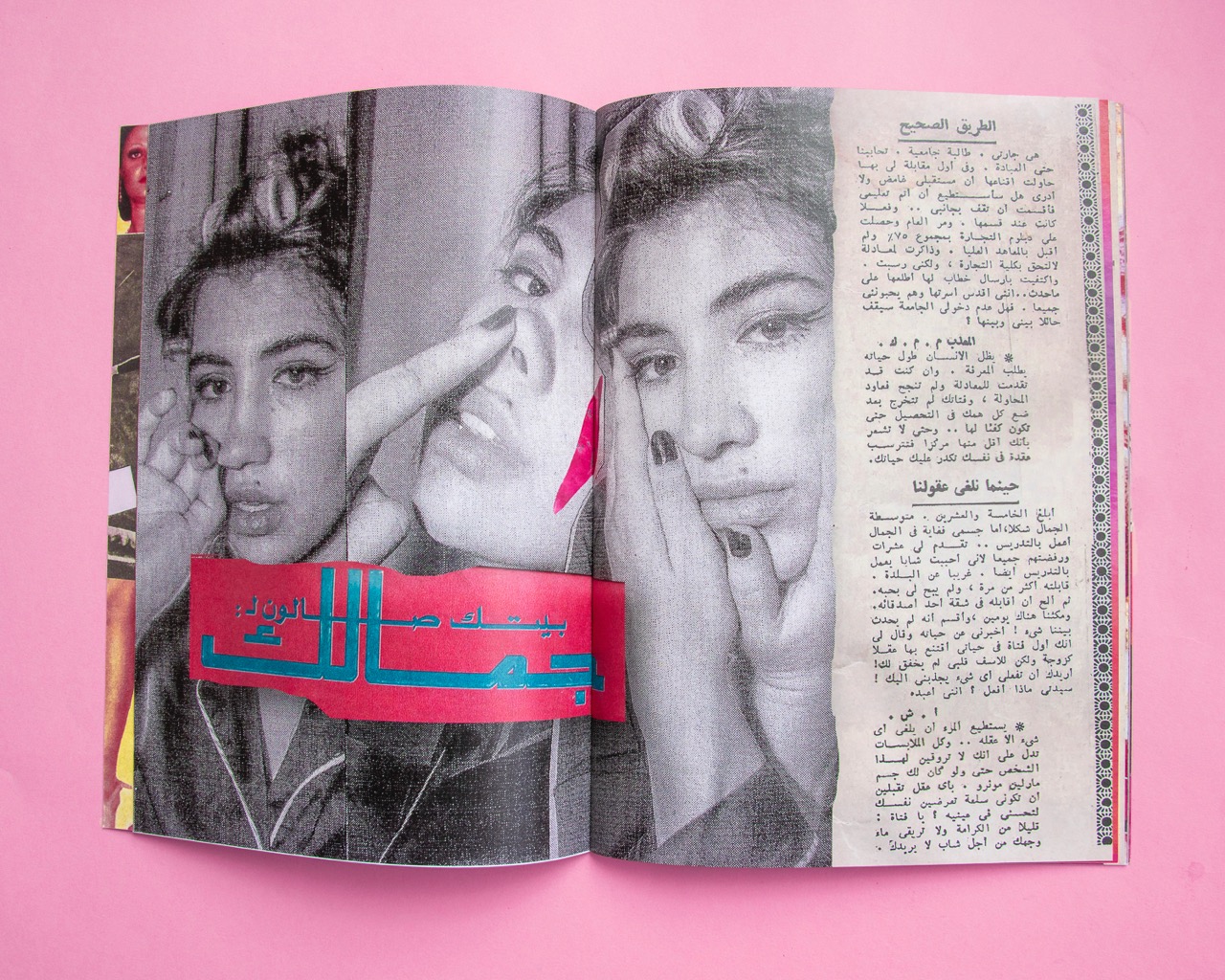
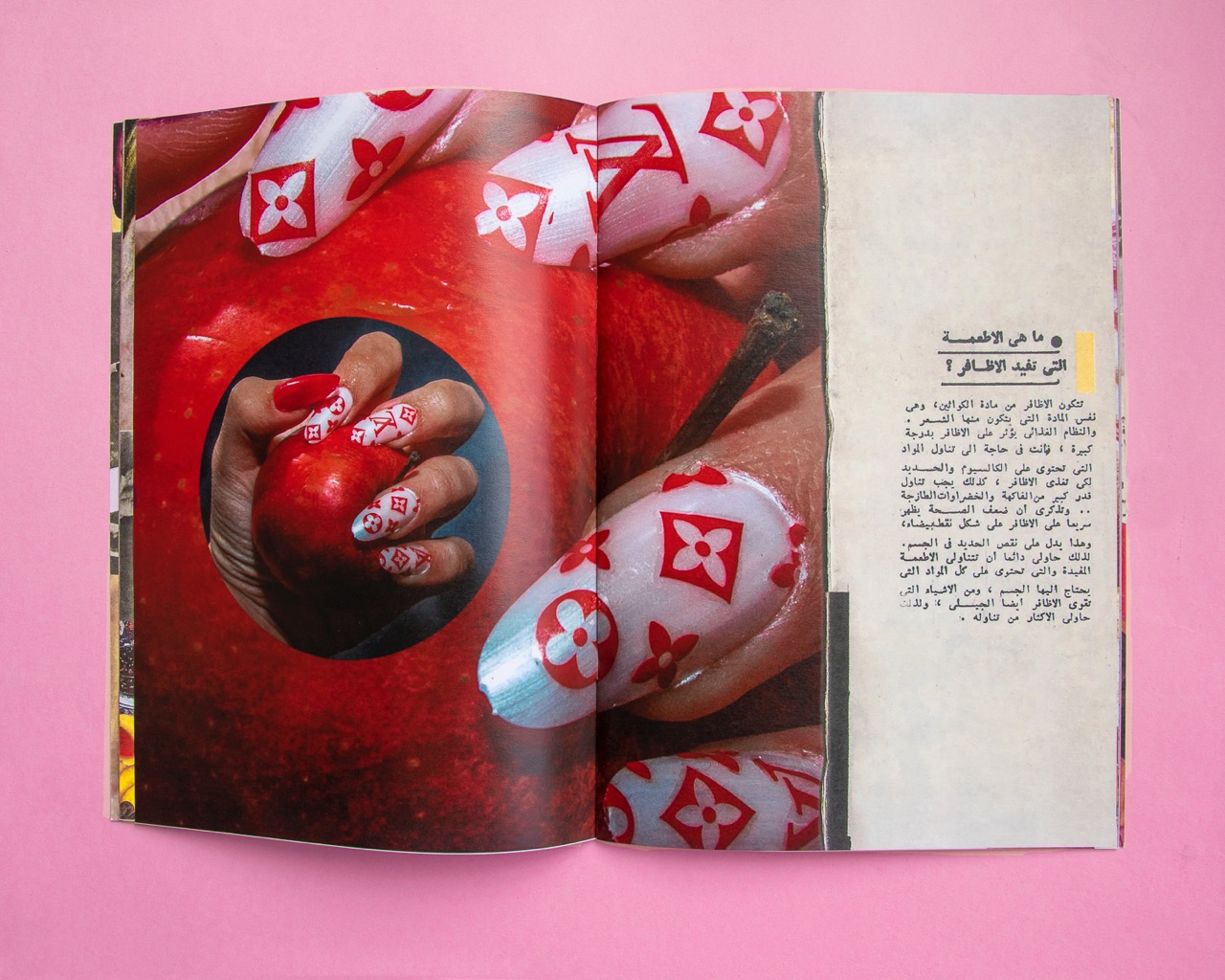
Coming across old copies of 70s Egyptian magazines in Attaba such as ‘Hawaa’, she used them as sources of exploration of the female process, and fuses it with modern elements to create different narratives on womanhood. For instance, her most recent artistic project focuses on women’s nails, and exploring how little things such as press-on nails can alter and create a female persona without knowing the identity of the woman.
“There is a certain anonymity to women’s hands. I can embody different feminine personas and tell multiple stories through these press-on nails without anyone knowing that it is the same hand and the same woman,” she says.
For Nancy, the most interesting part of her project is the narrative – it is the exploration of the female process rather than the visuals as she also includes the written articles of the magazines. “When you read these magazines, you notice that the narrative is completely nonsensical; it is devoid of humanity. They talk to you about horoscopes, diet, and construct this world that is not based on anything real, just like how we see on social media and how it influences young women as well,” Nancy says.
One article writes, “which foods are the best for your nails?” while another one states, “your home is your beauty salon,” written in bold across the page. These articles and images are approached by Nancy in ‘Hagat Helwa’ with curiosity rather than criticism, elevating the question of beauty and how it is deeply embedded in the formation of a woman’s personality even today – presenting this ‘female process’ across time in print and artistic vision.
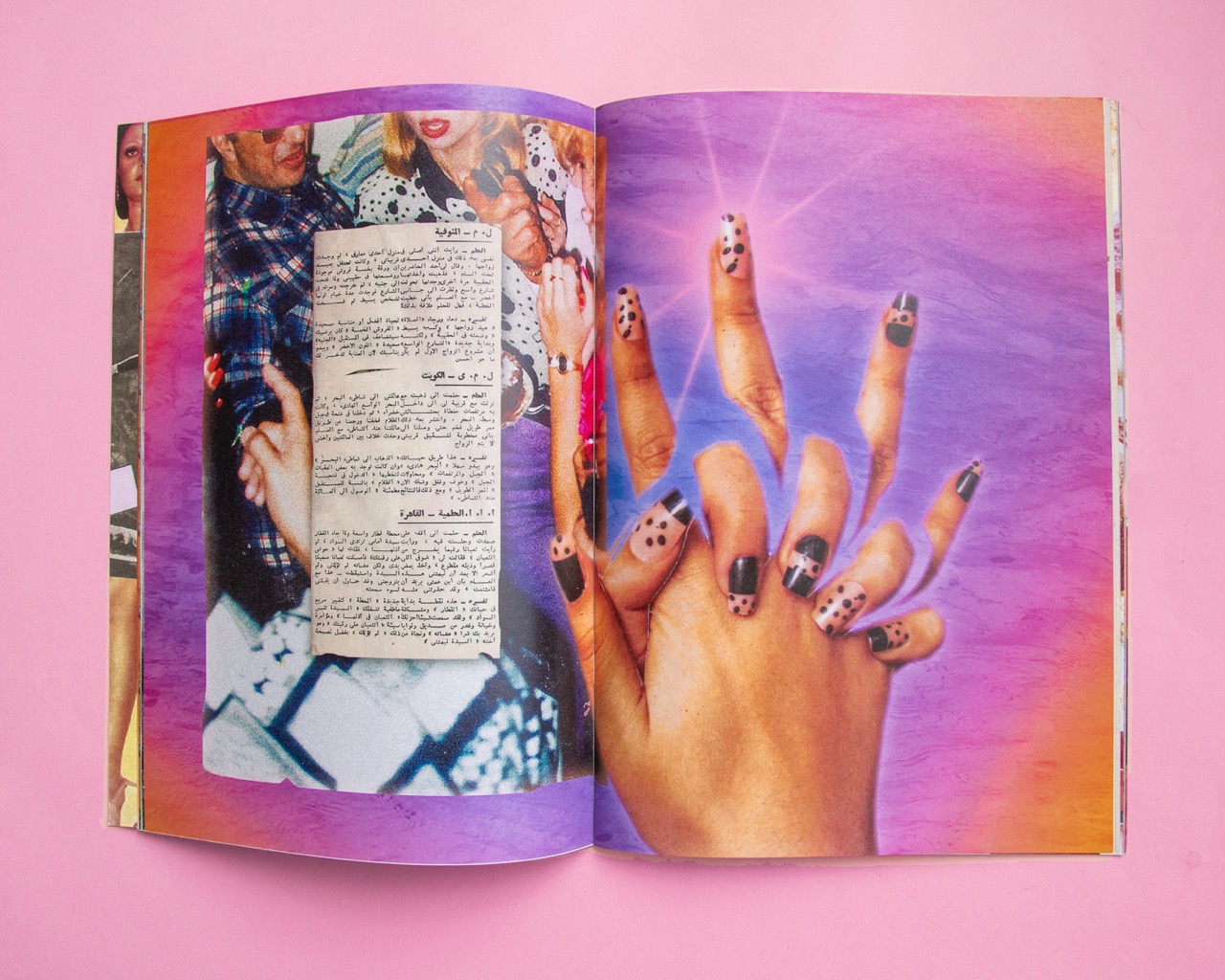
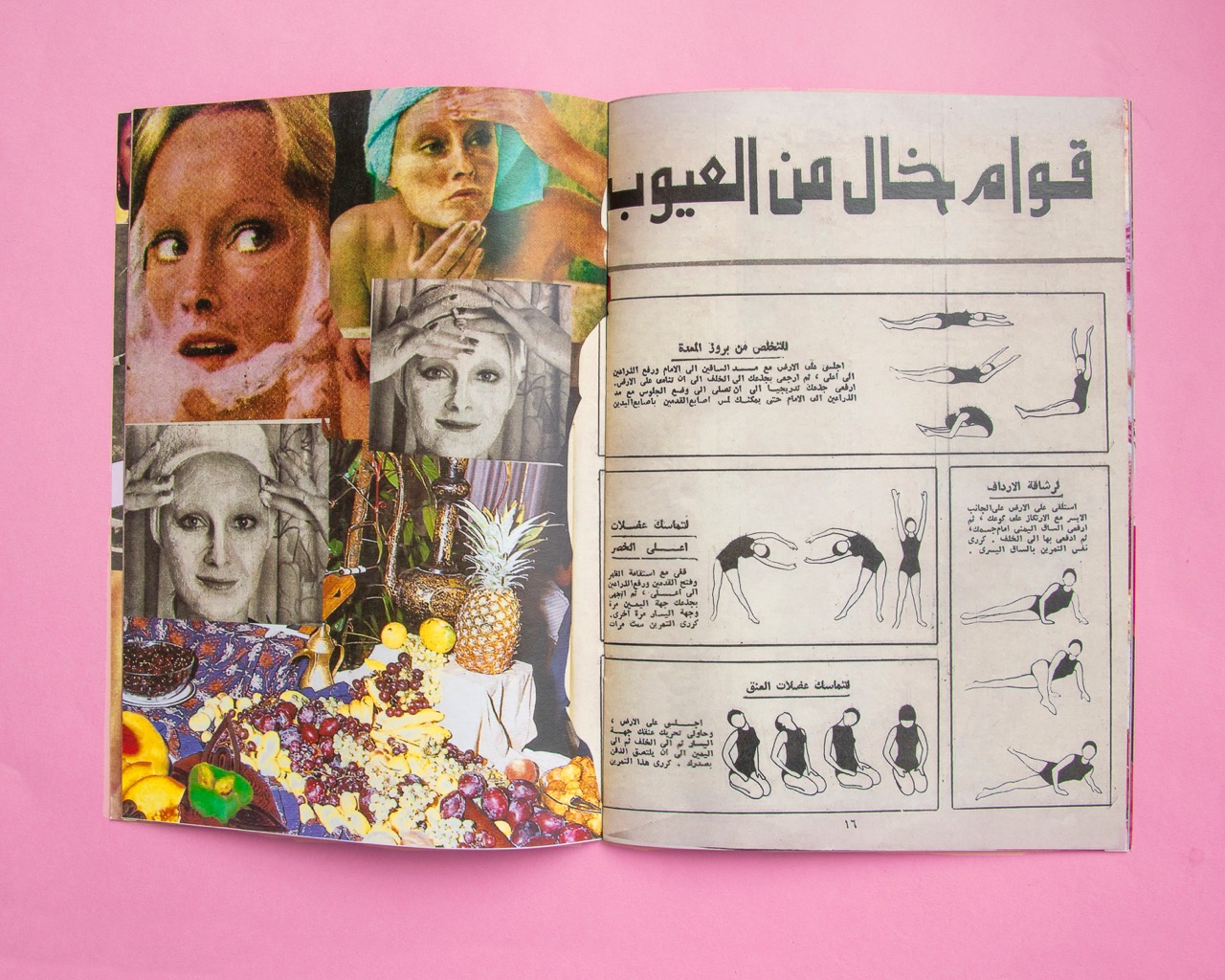
Egyptian beauty, and Egyptian femininity in particular, was never found in any of the magazines. “All of the old magazines I found used stock images of foreign-looking women, with the exception of Ragaa El Gedawy, There was – and still continues to be – no real representation of Egyptian femininity, and beauty I still feel continues to be looked at from colonial lens,” she adds.
Through her printed magazine, Nancy aims to present a visual narrative and explore Egyptian society’s most perplexing issue of femininity in all of its contradictions. It is an exploration of the self, of the woman, and of the entire society, looking at how beauty is in fact much larger than just products and pretty images, but a social problem – an issue that is rarely tackled in writings on feminism.
“When we lie about the basic values of our culture (that women must be beautiful) and yet do everything in our power to adhere to that value (we kill ourselves to make ourselves beautiful) and lie about the labor women must put into adhering to the unspoken value of our culture (we have to be effortless), we ensure that nothing will ever change,” Amy Choi writes.
At its core, Nancy’s ‘Hagat Helwa’ is a truthful exploration of womanhood – it unveils the cover of an entire machine that programs women to adhere to certain standards, rules and regimes for them to truly become ‘women’.
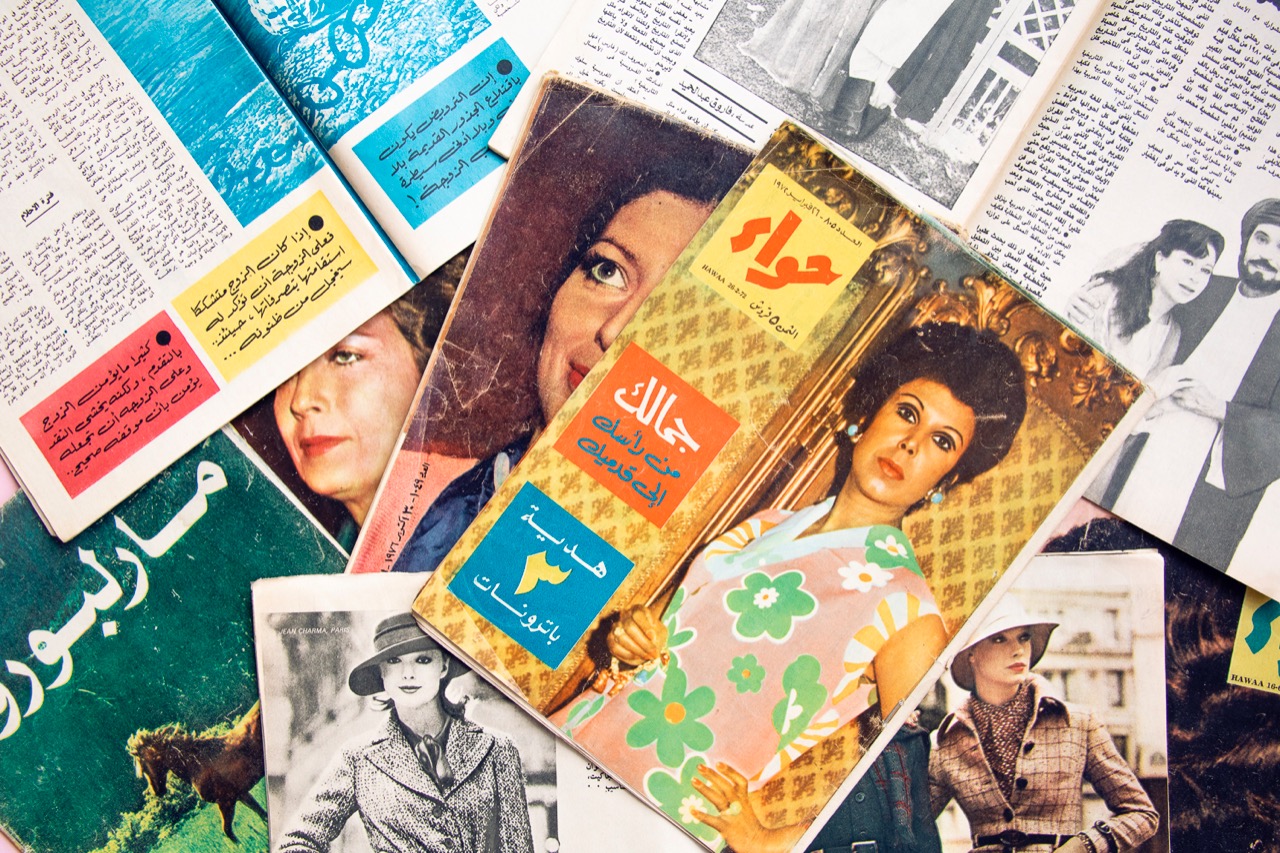






Comments (3)
[…] ‘Hagat Helwa’: Exploring Egyptian Femininity From Past to Present Ash: the French-Egyptian Musician Dominating Streaming Platforms Around the World […]
[…] ‘Hagat Helwa’: Exploring Egyptian Femininity From Past to Present […]